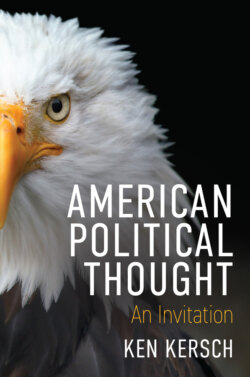Читать книгу American Political Thought - Ken Kersch - Страница 17
Conclusion
ОглавлениеMany Americans are inclined to treat the study of American political thought as a catechism. In this catechism, the country is held to adhere to a set of abstract, and celebrated, creedal commitments – liberty, equality, democracy, justice – which its institutions were designed to honor and implement. Individuals and the nation may not always live up to these American ideals, and its institutions may from time to time fail to realize them, but, if that is the case, a course correction is always on order, to set the nation – “man’s last best hope on earth” (Lincoln) – back on the right path to the realization of its noblest ideas.
Others, however, approach the subject entirely differently. Many of these other approaches emphasize pluralism, contention, and an open-endedness, provisionality, and perpetual incompleteness that does not lend itself to catechism. In one important study, for instance, Contested Truths: Keywords in American Politics since Independence (1987), the Princeton historian Daniel Rodgers posited a cynosure set of words (utility, natural rights, the people, government, interests, the state, and freedom) around which the conceptual debates of American political life have dilated over the course of American history. Given who they are and what they do, great poets – Robert Frost in “The Black Cottage” (1914), for instance, or Tracy K. Smith in “Declaration” (2018) – have also emphasized the open-endedness of core American events and ideas, while still gesturing toward the idea of a discernable American political tradition. Argument, contestation, and irresolution may, by some lights, be as constitutive of a political culture and tradition as unity and finality. Power might matter. But power might be challenged, and shift. In this regard, in her poem, Smith acts not only as legatee subject, but also as self-determining agent of American political thought.
For native-born Americans, the tradition of American political thought is presumably a birthright and inheritance. For naturalized Americans, it is often a chosen history and family. For non-Americans, given the global reach and influence of US power, politics, institutions, and ideas in the twenty-first century, whether undertaken willfully or not, it is commonly an encounter. Knowing the history, habits, perils, and promise of American political thinking is an illuminating part of any rounded political education.
